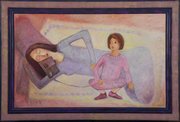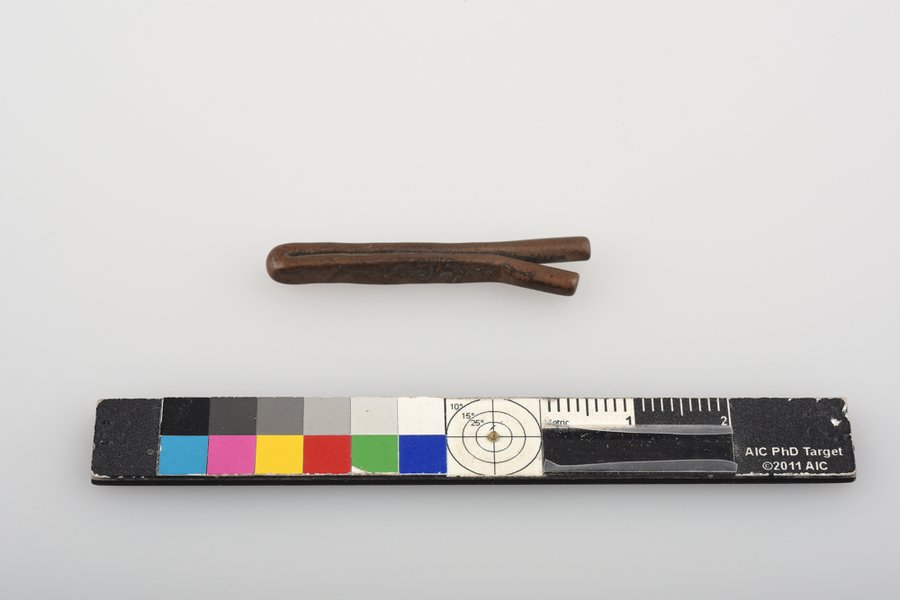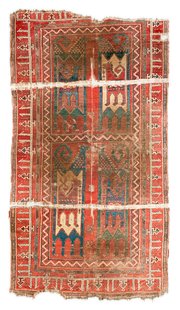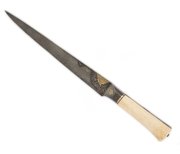
Coin
National Museum of Qatar
- Title:
- Coin
- Production place:
- South India
- Date:
- 1400 - 1599
- Period:
- 15th century CE
- Title:
- Coin
- Production place:
- South India
- Date:
- 1400 - 1599
- Period:
- 15th century CE
- Material:
- Copper alloy
- Dimensions:
- 36 × 4.4 × 3.4 mm
This lārīn/ ṭawīla coin is made of a bent and flattened copper alloy wire that resembles tweezers or a fishhook. The term lārīn derives from the Iranian city of Lār. Ṭawīla refers to the elongated shape of the folded coin, as ‘tawil’ means ‘long’ in Arabic.
The lārīn circulated across the Indian Ocean to Arab/ Ottoman (Baṣra, al-Aḥsā'), Iranian (Hormuz, Bandar-i'Abbas), Indian (Dabul) and Sri Lankan ports. It was inscribed in both Perso-Arabic and Indian characters, while its shape and size may have made it a cosmopolitan exchange measure.
These very small and seemingly insignificant objects are remarkable as evidence of trans-regional exchange in late medieval and early modern Qatar. This coin was found at a campsite in the southwest of Qatar.



